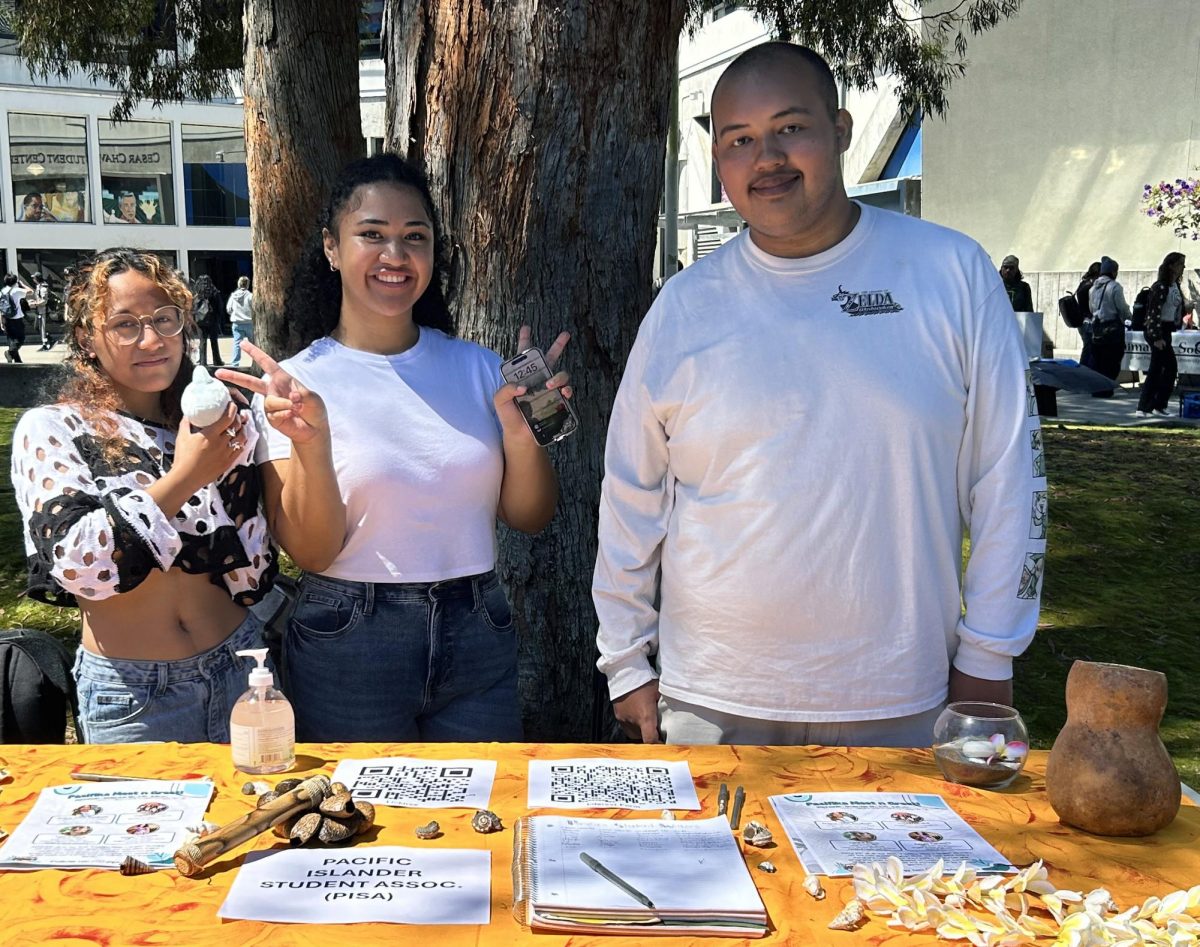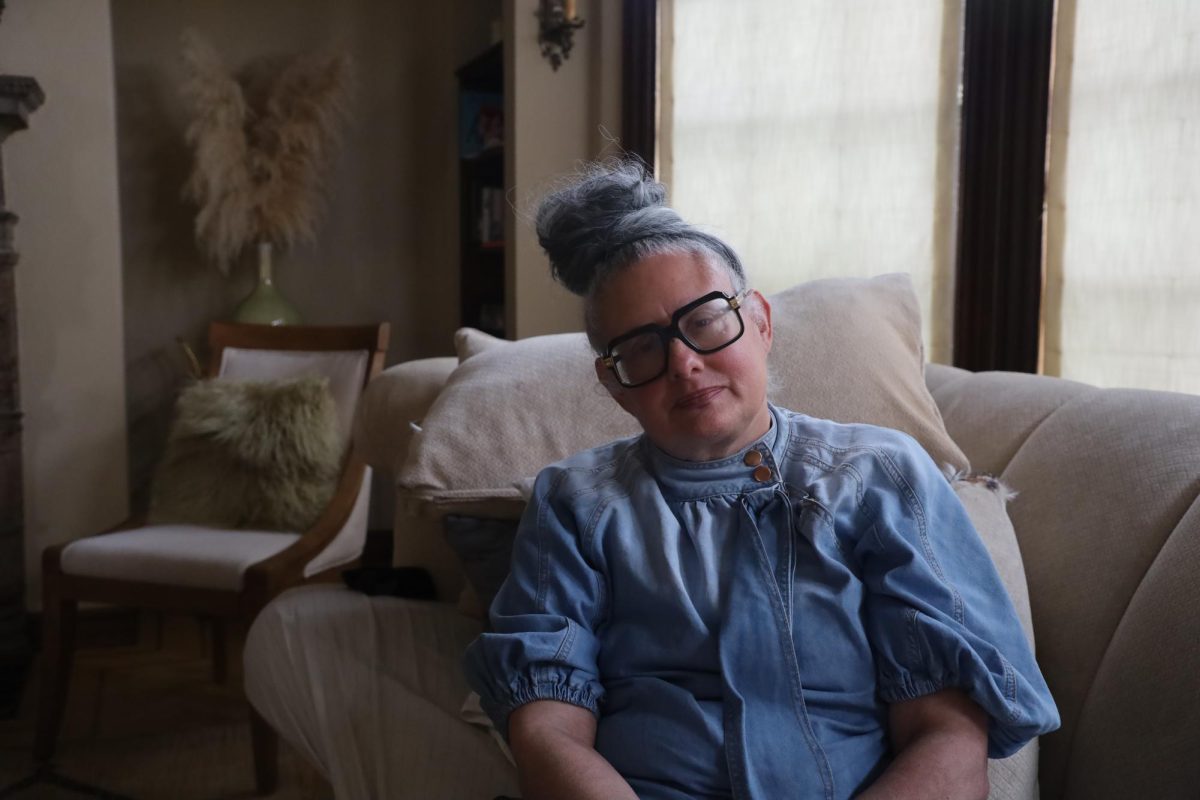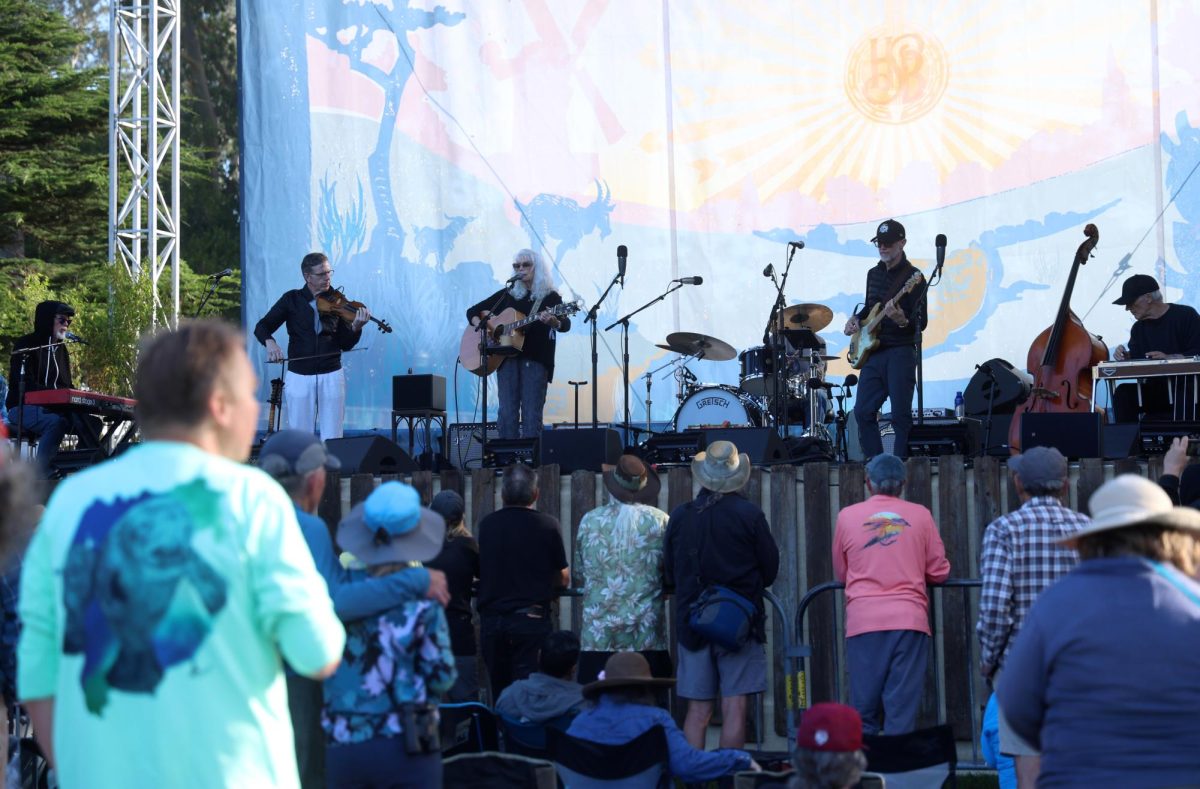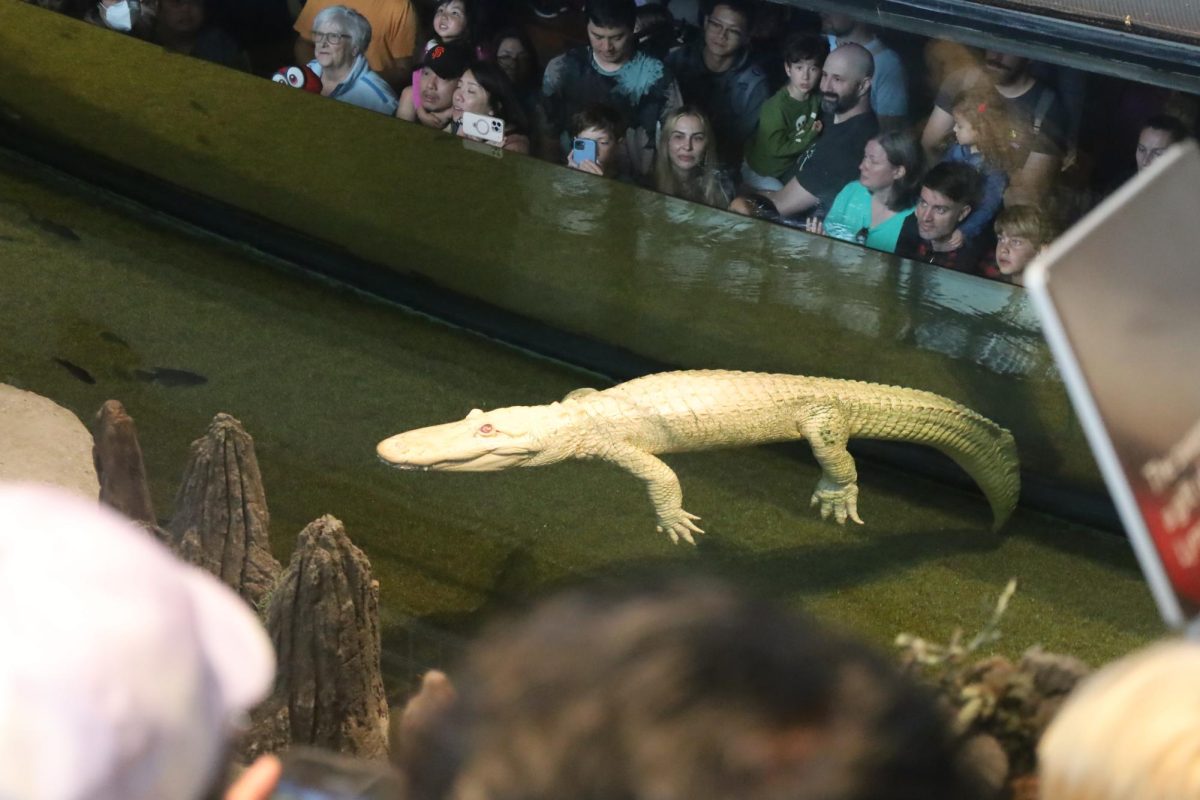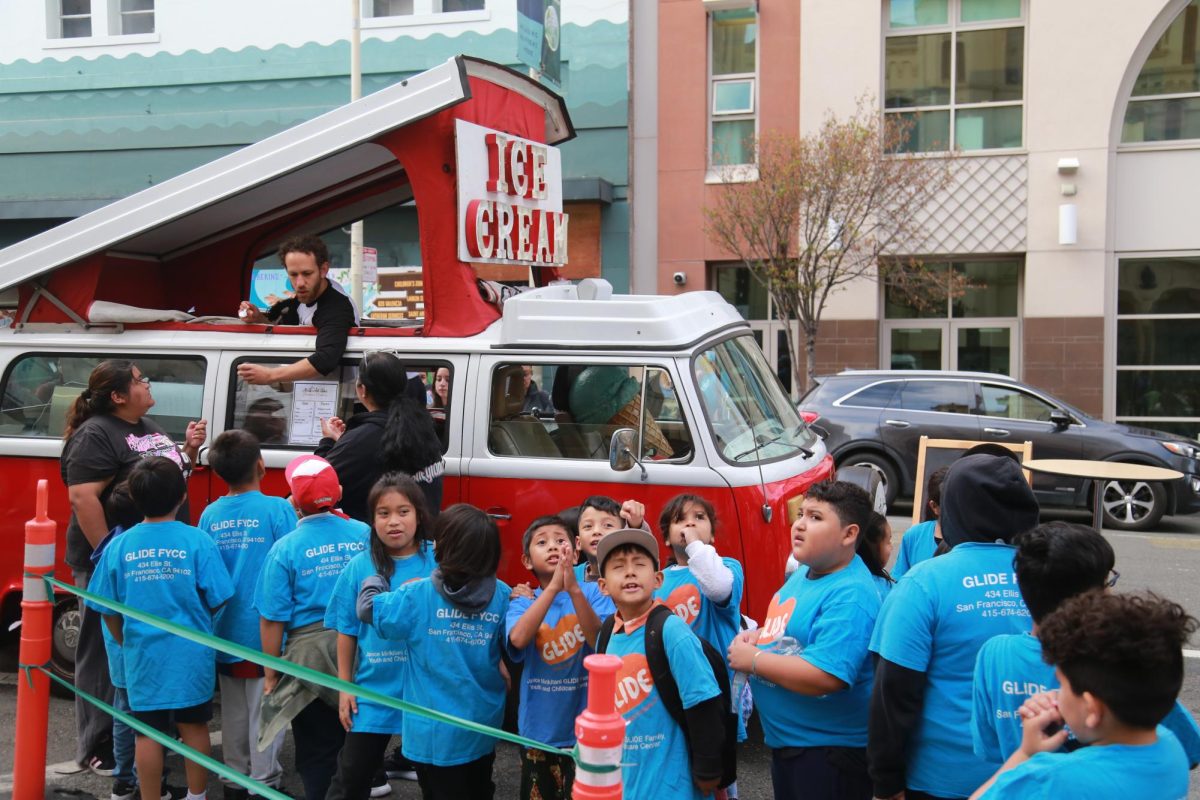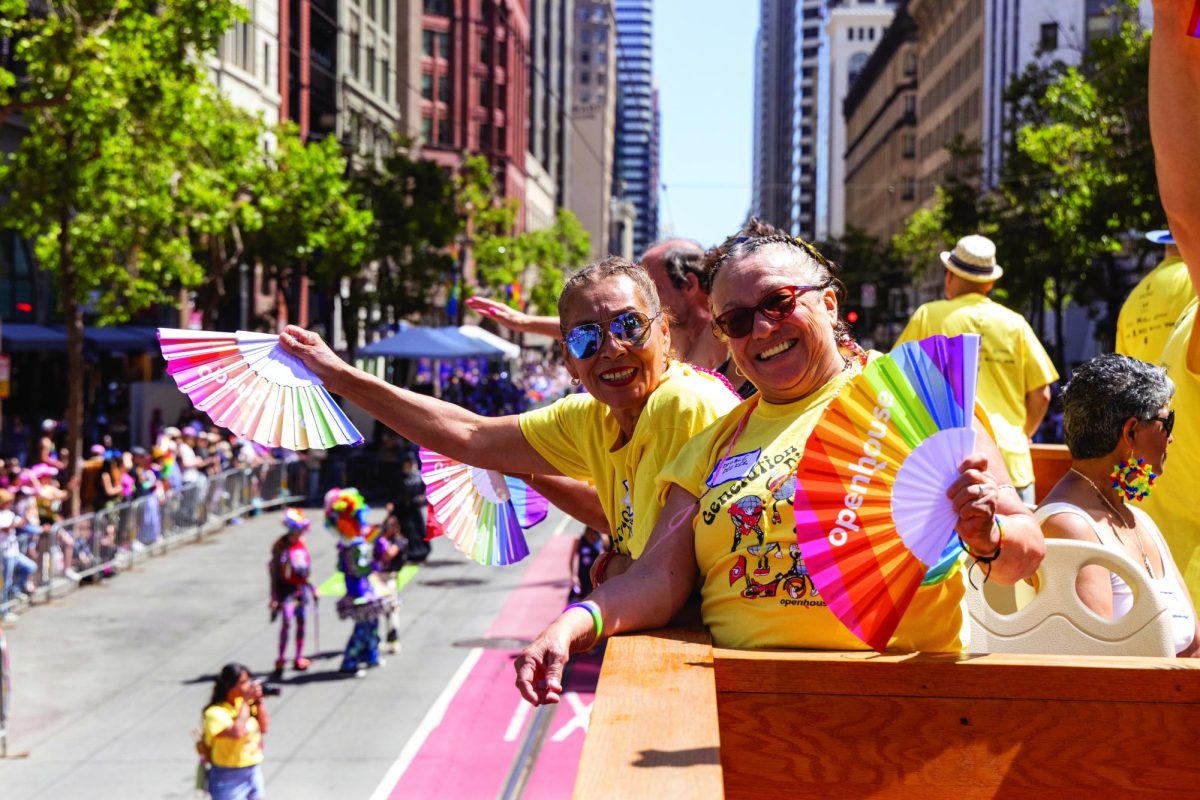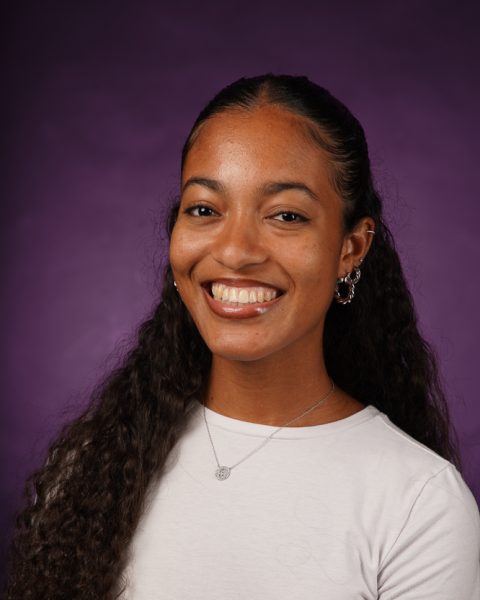In a dimly lit, rectangular room tucked away in the corner of the third floor of the Cesar Chavez Student Center, a small group of students shared their deepest insecurities. They went around the table and, one by one, opened themselves up unflinchingly and honestly about fear of failure and other self-doubts.
It wasn’t a group therapy session, it was an impromptu study night turned hangout hosted by the Pacific Islander Student Association (PISA) at SF State, and they were playing a card game that promotes vulnerability called We’re Not Really Strangers. After one round –– despite the fact that some of them had met for the first time that day –– they were strangers no more, and they were safe in a space they created all on their own.
Students come to college looking for a place to belong, but for some Pacific Islanders, that community isn’t always easy to find. Keilani Hong is the co-vice president of PISA, but before she stepped into that role, she, too, was lost.
“PISA was kind of a saving grace for me, because when I got here, I felt very isolated, and I felt like there was no one that looked like me,” Hong said.
Hong is Chinese, Filipino, Hawaiian and Irish and grew up in a predominantly white town where being of mixed racial descent didn’t exactly lend itself to acceptance. That lack of a sense of belonging extended to higher education.
“When we grow up seeing everyone not look like us in this field, it’s hard to feel like there’s a place for us,” said Hong.
Amelia Tupua, the president of PISA, had similar thoughts. While she has a big cultural community outside of school, she still recognizes the importance of unity.
“I think because we’re so underrepresented, I feel like imposter syndrome kicks in heavy,” Tupua said. “You even heard it when we were playing We’re Not Really Strangers. It really kicks in because you don’t see people that look like you, so community is important.”
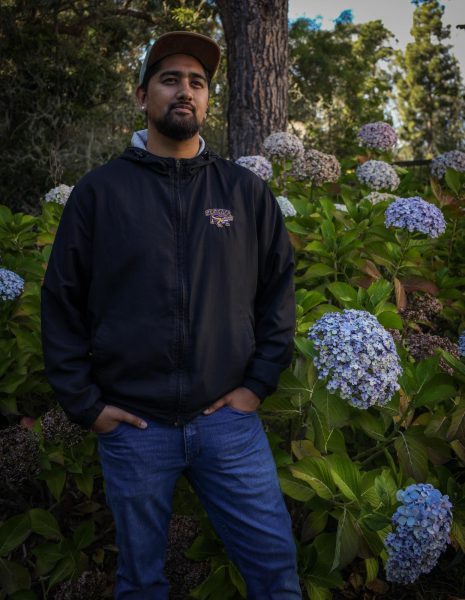
The lack of representation Tupua was referring to can be seen through the statistics of the ethnic demographics at SF State. According to the SF State Facts page on sfsu.edu, Pacific Islanders make up 0.6% of the student population. This data does not include Pacific Islander students who identify themselves as mixed race, but even if it did, there would still be considerable differences between the numbers of Pacific Islanders on campus and those of other ethnic groups.
It isn’t only the amount of representation this group receives that affects whether or not they feel like they belong, though. It’s the way in which the image of their people is reflected back to them.
Tāne Teʻi is a member of PISA and now works as a student navigator for SF State’s new Oceania Scholars Program (OSP), which opened in early October. He resented the fact that his people are often only seen for what their bodies can do and only encouraged to do well in school so they can play sports and earn scholarships.
“Growing up, we only see role models in sports and entertainment …” Teʻi said. “We don’t grow up seeing Pāsefika lawyers, doctors, activists, scholars, educators, politicians, entrepreneurs – we don’t even typically see these people.”
Te‘i uses the inclusive term “Pāsefika”, which is an indigenous translation of the word Pacific, in reference to all peoples that call the Pacific Ocean their ancestral home. According to him, this diaspora is on the come-up.
“There’s been huge strides forward for our Africana brothers and sisters, our Latinx brothers and sisters, Asian American brothers and sisters,” Te‘i said, “and we’re just starting to now get our little foot in the door and get our little space in higher education.”
To get that foot in the door, though, somebody had to first crack it open. The people who did that – the people who laid the groundwork for the young leaders of PISA and for other Pacific Islander organizations on campus – came years before.
Sarah Wongking-Tanuvasa is a faculty member at SF State who taught one of the first classes created for the Critical Pacific Islands and Oceania Studies (CPIOS) minor: Health and Wellness Among Pacific Islanders. She completed both her bachelor’s and master’s degrees at SF State, and has been teaching at the college for 14 years.
“There has been a Pacific Islander organization on campus since 1995,” Wongking-Tanuvasa, who was once president of the Pacific Islanders Club – now PISA – said. “So, we’re actually talking about 30 years of student organizing.”
This organizing and pre-established base is the legacy that was crucial to the formation of CPIOS in 2016 during the hunger strike to fight the defunding of the Ethnic Studies program at SF State.
Levalasi Loi-On is now the Program Coordinator for the College of Ethnic Studies and was also once the president of the Pacific Islanders Club, but in 2016, she was a grad student passionate about making a change for Pacific Islander students. Loi-On helped these students hold school administrators accountable to delivering on their promises and meeting demands. The students wrote syllabi and proposed courses, and the rest was history. The CPIOS minor became official in March of 2019 and now comprises 5 classes.
“Being the person that’s kind of been here in a lot of roles, I’ll just say it’s [CPIOS] a long time coming,” Loi-On said.
Since the foundation of the minor, the way Pacific Studies is viewed has shifted, and there is more of a focus on sovereignty and liberation.
“It’s not just about studying the Pacific from the outside in, it’s having this critical analysis that is rooted in ethnic studies,” said Wonkging-Tanuvasa, “which also means the student activism and organizing piece is really essential, too.”
In addition to the Pacific Studies courses, the minor requires its students to take Intro to Ethnic studies and Grassroots Organizing, both of which contribute to the success and perpetuation of the program.
If having classes by Pacific Islanders for Pacific Islanders is the first step toward making a space in higher education, the OSP is the next.
“We want to have more students see themselves and see their future at SF State but then also be able to graduate and stick with the college, and then find meaningful careers in whatever fields they’re interested in,” Wongking-Tanuvasa said.
The simple fact that the CPIOS minor exists draws Pacific Islander students to SF State, and the support that the OSP provides encourages them to stay.
“The program is meant to really support student retention, student graduation and a sense of belonging for students on campus,” said Wongking-Tanuvasa.
This is done through Pacific Islander-focused events on campus, advising appointments, outreach and recruitment for prospective Pacific Islander students and connections with on-campus resources for current Pacific Islander students. It is an all-encompassing, holistic approach to ensuring the best-possible success rate.
The REACH program, which stands for Responsive Education for Access, Community and Hope, is another organization aiming for similar goals. Lorenzo Finau-Cruz, Outreach Specialist for the College of Ethnic Studies, never felt he belonged when going on tours of college campuses.
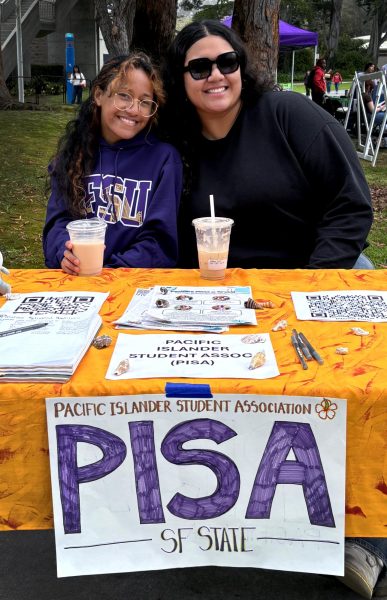
Now that the tables have turned and he is the one wearing the tour guide’s jacket, he is working to ensure that no potential SF State student feels the same way he did.
“It wasn’t until I found [a] community that accepted me for who I am that I began to thrive,” Finau-Cruz, who is Filipino, Spanish and Tongan, said.
Although its services aren’t limited to Pacific Islanders, REACH stays one step ahead of the game and creates community for students before they even enroll. They visit high schools and hold RAP sessions, which stands for Reflection, Action, Praxis, where they talk about social issues. As the Outreach Specialist, Finau-Cruz also helps students form cultural clubs and create their own spaces.
Alana Pi‘ilani Orth is a graduate student assistant for the program Asian American Collective Action for Racial Equity and Solidarity (AA CARES) who appreciates the collective efforts of PISA, the OSP, CPIOS and REACH.
“I feel that San Francisco State is providing a model of what Pacific Islanders in higher education can look like,” Orth said.
In creating these safe spaces, Pacific Islanders at SF State are creating guidelines for other schools to do the same and to ensure every student of every culture has a place on their campus.
“They want to feel seen,” Loi-On said, “and they don’t want to have to explain all of their different experiences of being racialized as a PI student.”
Societal standards and historical disparities aside, Pacific Islander students are creating family from strangers and fostering change for themselves and all who will come after.
Hong’s favorite thing about the community she found? “I moved 300 miles away from home, but I found another one.”



